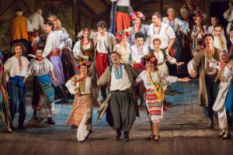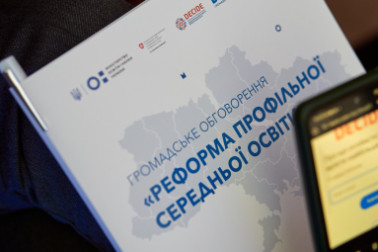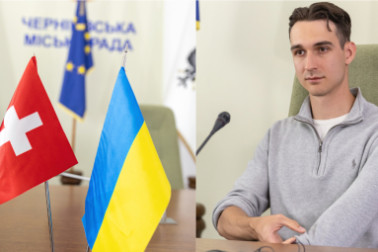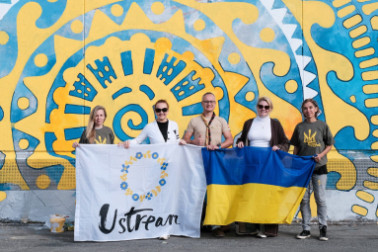Where Strength Comes From and About Ukraine
I love movement. We, humans, are akin to water. If it doesn't flow, it stagnates and molds. Given that I tend to take on everything, and, like most Ukrainians, am currently under constant stress, this continuous movement and pressure prevent stagnation. Together with my like-minded peers, I strive to change this world. And this is a national characteristic of Ukrainians. Because russians believe that nothing depends on them, but for Ukrainians, everything depends on us – it determines the kind of country we will live in and who our children will consider themselves to be.
In Ukraine, unlike our northern neighbor, a civil society has long been formed which, in essence, is building the state for itself. We do everything unconditionally to save our country because we separate Ukraine from our personal lives. Not to destroy, but to create – this too is a national difference. Hence we work for our country, "in spite of and independently," rather than "thanks to."
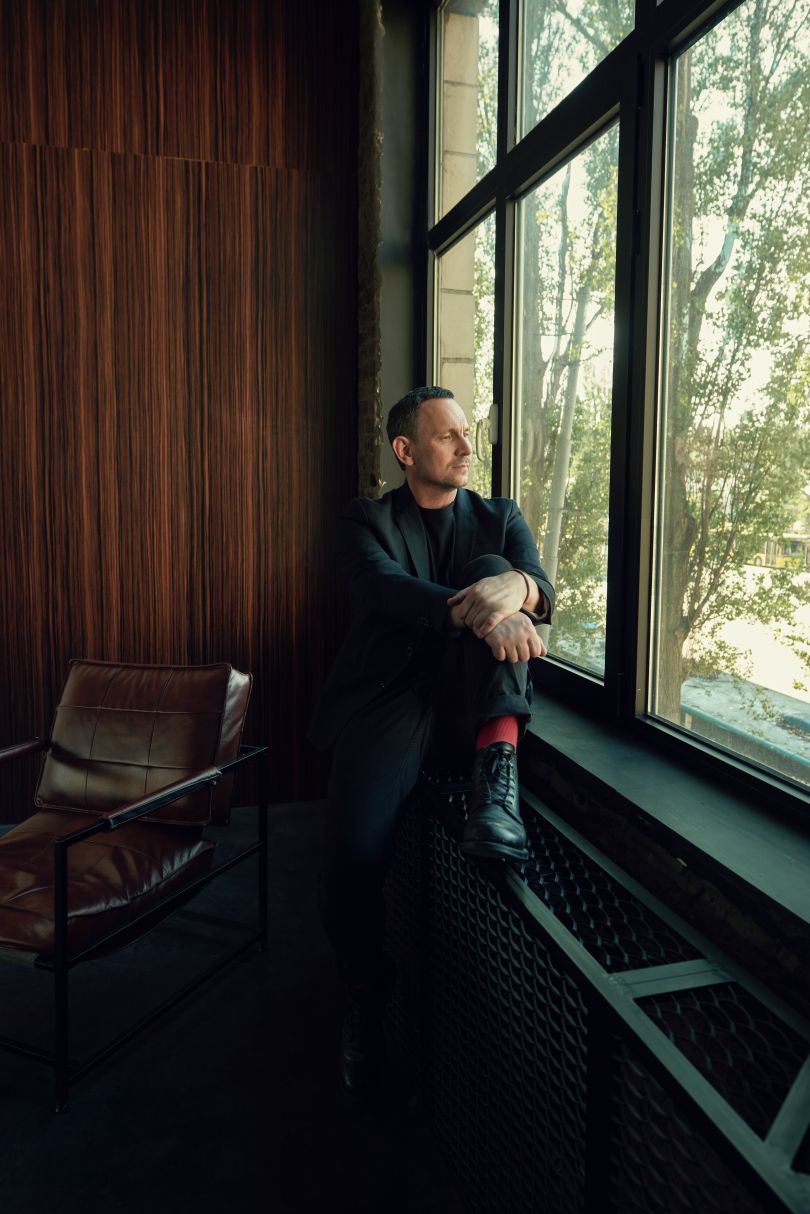
Ukrainian music and European perspective
If our army and our Armed Forces are, so to speak, the face, the facade of our country, then culture is its rear. We now have a unique opportunity to set a trend for Ukrainian culture and the Ukrainian language. And this depends on everyone in their place, in any field, because culture is a global phenomenon, influenced by almost all spheres and social groups. For instance, we do this within the NGO "UACRR", despite not being the structure that should popularize musical content. We collect royalties as a result of this popularization. All institutions, including the Ukrainian Cultural Fund and the Ministry of Culture, should create conditions for content distribution so that we can integrate into Europe, culturally included.
Thanks to our partners, each of whom oversees 100 percent of the music rights of local music authors in their country, we plan to create conditions for collaboration with our closest European neighbors: the Poles, Czechs, Romanians, and Bulgarians... Ukrainian music, like theirs, is not part of the general global show business. We are local music cultures that are interesting primarily to local audiences. But, like us, they also have artists who fill stadiums.
I'm not sure that I aspire to be the generator of a unique idea, but there are plans to set up a simple "Global Cover Project", where Ukrainian artists, primarily mainstream musicians, would cover songs of our closest neighbors. In other words, we would sing Polish, Czech, Romanian songs, and possibly English ones. They, in turn, would sing ours. These should be free creative collaborations: absolute freedom of integration, with or without the creation of a joint clip. You sing here, in Ukraine, covering a Polish song. Similarly, a Polish singer takes a song from the band "Druha Rika" and covers it. If he wants to involve me, we can do this together. Such integration would be very natural.
All this will increase the receipt of royalties if the use of a Ukrainian work spreads, for example, in Poland. Because, unlike Ukrainian media, they pay royalties to their authors. If a Ukrainian song plays there, they will pay royalties to Ukraine, and this is what we guarantee as a collective management organization that has agreements with most countries in the world.
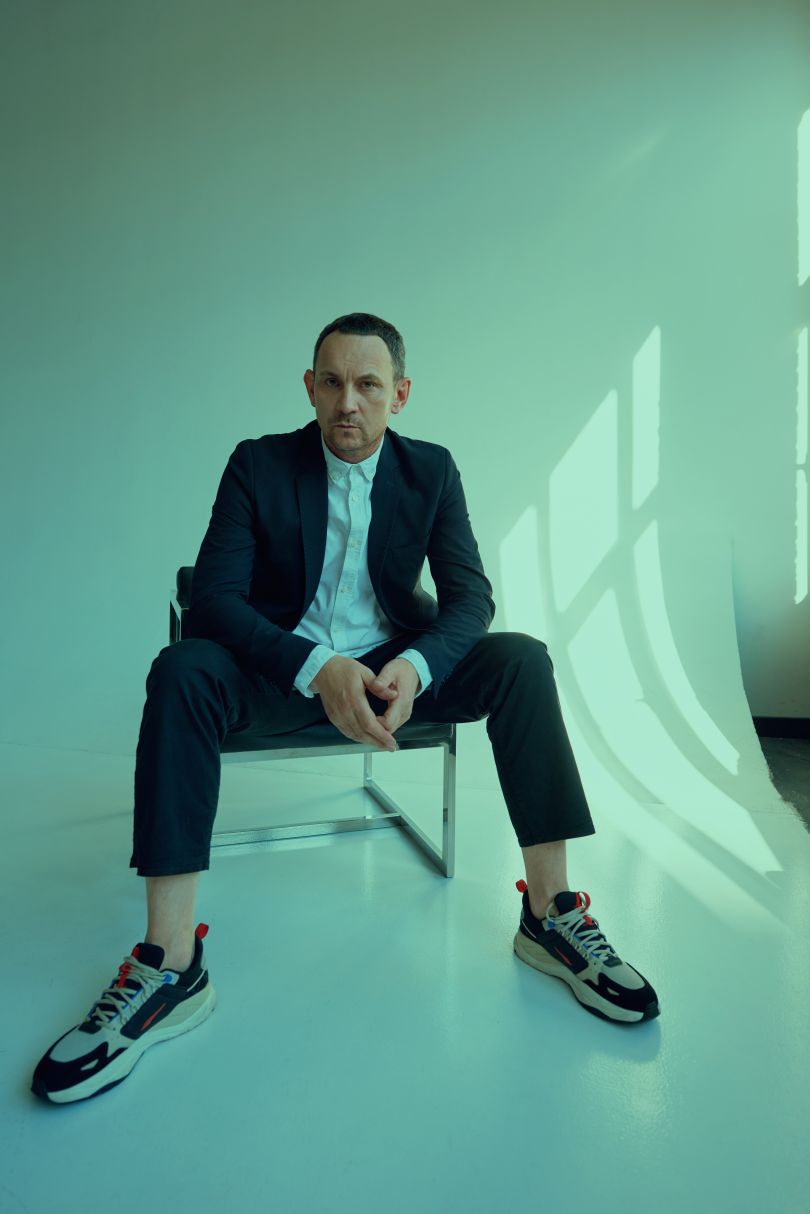
Work, art, and working in the art industry
Had the state institutions in Ukraine cared for information policy since its independence and radically limited the spread of russian culture 9 years ago, we wouldn't have to implement laws banning the public use of russian content today. Moreover, we wouldn't have become part of the russian information field and cultural environment. Despite the existence of such a law now, it doesn't prohibit the distribution of russian content on the global network. Any political influence, let alone a ban, is not within the competency of collective management organizations for property rights.
The "Ukrainian Agency for Copyright and Related Rights," where I serve as the General Director, severed ties with the russian collective management organization RAO. This means that we haven't transferred a single penny from our account to the russians for their music, thus not motivating them to create and distribute new russian content in Ukraine. Moreover, we are compelled to influence international platforms such as YouTube, Spotify, Deezer, and Apple Music, urging them to limit the flow of russian music content into Ukraine.
Music is an underestimated tool of influence, a weapon that the enemy has skillfully used. Therefore, resisting cultural colonization is now my civic duty, not just a job. The NGO "UACRR" collects, distributes, and pays royalties to authors in Ukraine and worldwide. But now, we have the power to ban all "Muscovite" content through influence on platforms that pay royalties to russians during the war. We must ensure the removal of russian content that kills. Why does it kill? Because it's monetized, which means royalty expenses go to the same russian artists who support the occupation and Putin's army.
I am an artist, a creator, and so I understand cause-and-effect relationships. I know how powerful words can be, and the degree to which musical culture influences the younger generation, their young minds. Music plays on emotions. I turn on music, and it guides me, shaping my day. Therefore, I understand how music can impact a person. It's precisely why I want to eradicate everything russian.
In this regard, we are cooperating with the young Ministry of Digital Transformation and personally with Mykhailo Fedorov. He responded immediately and we synergistically teamed up with the Ministry of Information Transformation and the National Security and Defense Council with a single goal: to ban russian content on the global network. United, we sent letters on behalf of the Ministry of Digital Transformation, the National Security and Defense Council, and the NGO "UACRR" to all streaming platforms. We are currently working in this direction, doing everything within our power to ban "Muscovite" content.
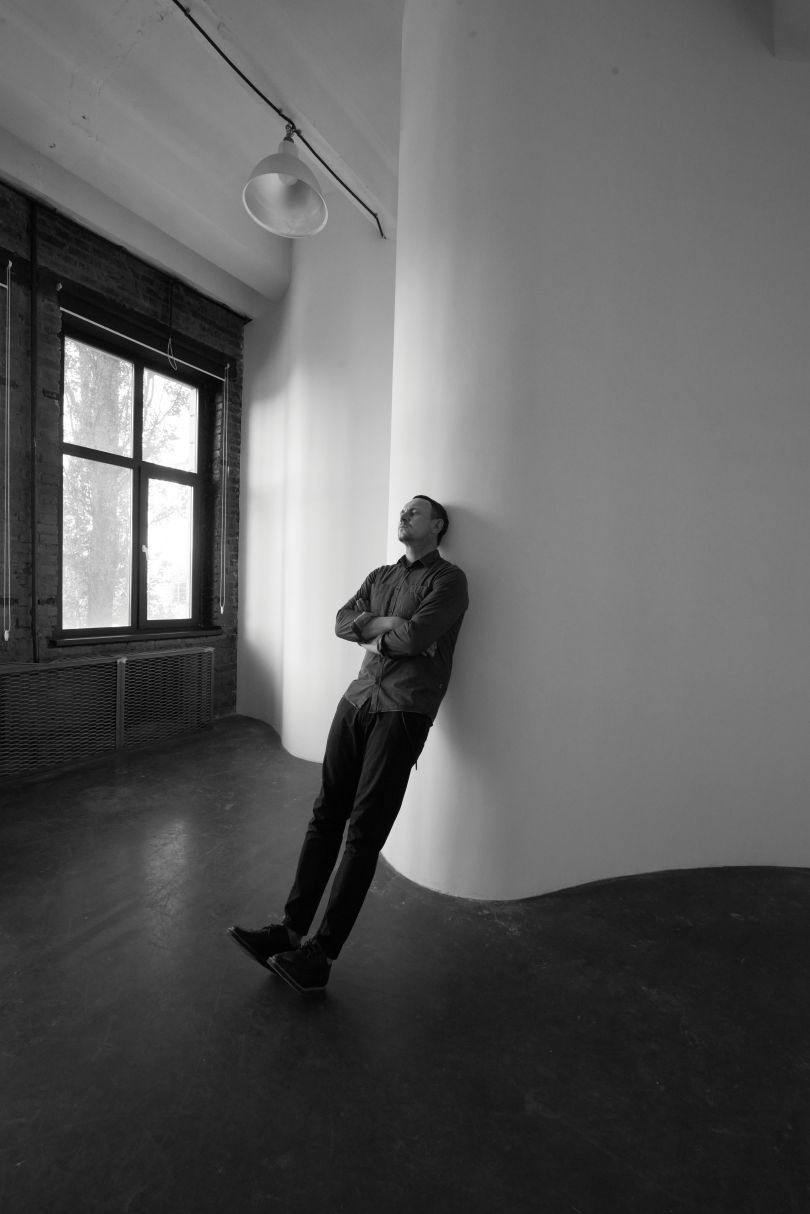
Ukrainians in Europe
During the war, "Druha Rika" has already had two European tours, and we are about to start our third.
Finally, on May 19th, our first performance in Switzerland, in Zurich, will take place.
I remember our first trips with the tour "Who if not us?" to the Baltic countries, to Poland, to France, I remember the eyes of Ukrainians at these concerts. We would sometimes pause the songs and just talk to the people. I understand how hard it is for Ukrainians there. Not everyone has a job abroad, but people donate money to help Ukraine because everyone needs Victory.
I saw few happy eyes during the breaks between concerts, everyone was traumatized by the war. Ukrainians have found refuge and protection in European countries. I have heard from many people: "We want to be able to return as soon as possible." But, unfortunately, not everyone has a place to return to. My children, for example, do not – their house near Kyiv has been destroyed, as has the house where I planned to relocate my parents.
I plan to engage in the restoration of destroyed housing. My goal is to assist people who, like me, have lost their homes.
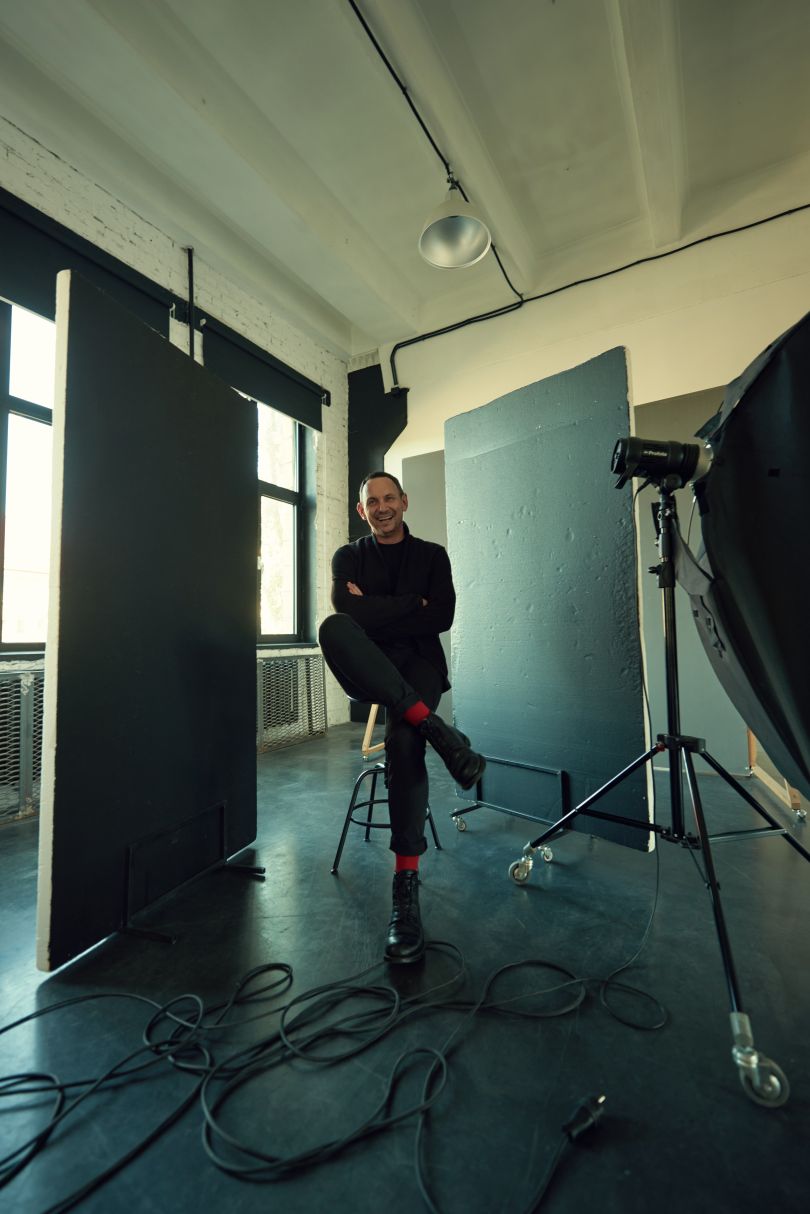
Personal Matters
I love freedom, I always feel it. I experience freedom and romance while traveling across Ukraine. Sometimes, I head out to the Kyiv Reservoir just to commune with nature, with the water. It's enough for me to just look out the window of my car if I'm traveling somewhere for a concert. Music creates my mood. If there was no music, I don't even know what I would be or if I would exist at all. It seems that living for music and love is worthwhile. But the war has shown me that I can do without it.
I don't know where that dopamine, the happiness hormone, comes from. But it exists. Because the soul and the human body are boundless, and you never know what brings you this happiness. It could come from some small thing, from something that has finally worked out: performing a successful concert, buying necessary items for volunteering needs.
It also comes in the moment when, after an interview, users reach out to you and say, "We want to sign an agreement with you; for us, this is an important step of social responsibility because we trust you." They know that this money will find its ultimate beneficiary.
When I started collective management four years ago, I was a bit in despair because I was used to quick victories. I was used to getting dopamine when I went on stage, but in this work, there's just a gap... There's a lot of work, but no light at the end of the tunnel. And you feel like giving up. But when we received the first positive feedback, I felt happy. I have truly amazing friends and a wonderful team because they believe in what they're doing. But the war also showed that not everyone turned out to be from my planet; there have been many disappointments.
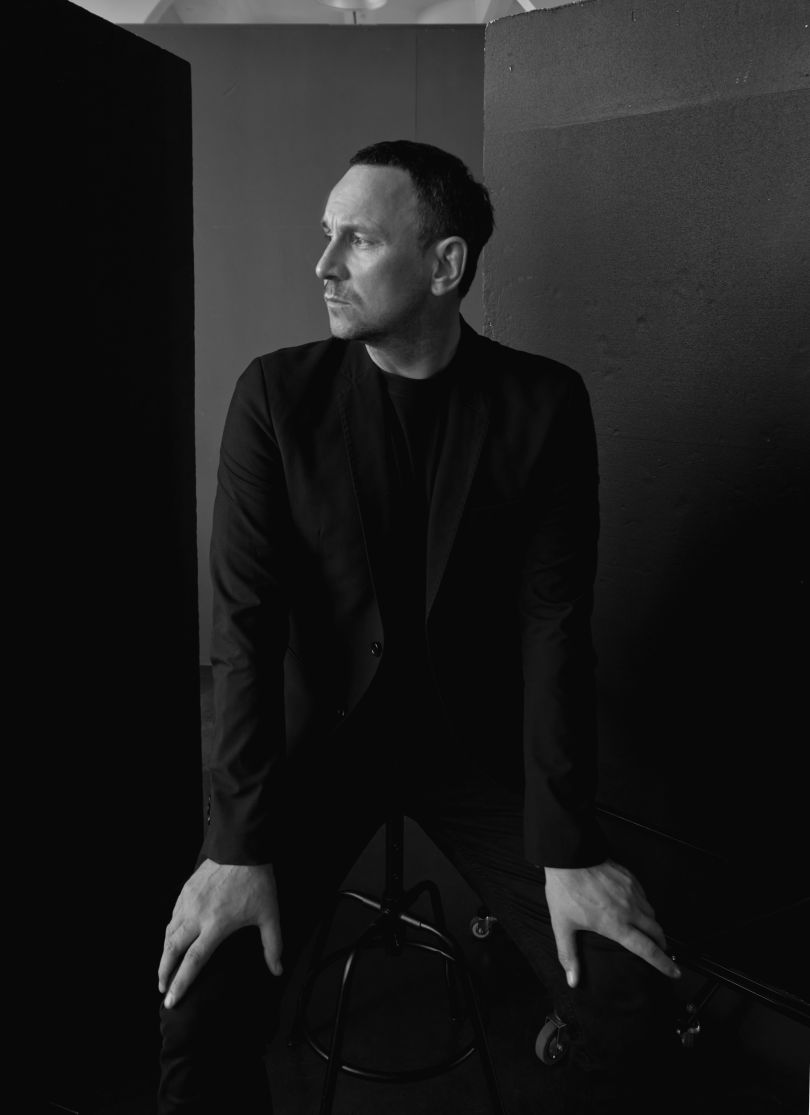
Revival
Ukrainians have remembered who we are. We recalled our name, woke up at the start of the war, and felt ourselves a nation. This, perhaps, is our most significant asset.
Not so long ago, after a concert in Odesa (a city in central Ukraine with its own unique cultural heritage), during dinner, we observed as people began to sing the Western Ukrainian song "Oy u luzi chervona kalyna" (Oh, in the meadow, a red viburnum). If someone had told me a year ago that in Odessa, in a restaurant, visitors would be singing this song, I would have said it was fantasy. Because now we are a single nation, we are a society, and essentially, the people are the country that will develop powerfully and quickly.
We will become a model for all of Europe, a new driving force, a force for change. I believe that in some categories, we respond much more flexibly than in academic Europe. We can change these institutions that have become outdated, especially those that were inactive at the start of the war, merely formal. Now, new structures will arise that are responsible for peace. So, I will say this will be another victory for us. It's not far off.
We need to put our state in order. I hope that civil society, which essentially is winning this war, will not disappear, but will only develop.
If I can change something in the state, it is not necessary for me to be a politician for that. I believe everyone can do it in their own place, because the main thing is not to stay silent, but to take responsibility for one's actions and initiate change.
Volunteering and War
At the beginning of the war, we took on any work that helped defend our country. Eventually, we realized that volunteering would be our most productive pursuit, so we engaged in concert activities not for personal financial gain or to satisfy creative ambitions, but specifically to assist Ukraine. Now, after a year of war, we ("Druha Rika") approach the matter more systematically. If we organize concerts, we know how much money we aim to raise, who it's for, what it's for, and what we will order with it.
The volunteer movement in Ukraine is what mobilized the entire country at the beginning of the war. Truly, what our musicians and the russian ones are doing can't even be compared. That's because russian artists wait until they are paid to order a patriotic song about russia. It's strange when they begin to "philosophize" on the subject of needing to buy thermal imaging devices for heating (laughs, - author's note). Because, you see, they need to warm up the russian army with thermal imagers!
We are fundamentally different. We are not russians. When it comes to patriotism and love for the country, these are simply incomparable cultures and nations. We differ in that we give, while they take for themselves; it's their mentality. They stand for death, we stand for life. We aim to create, they to destroy; we build, they demolish. Imagine, when humanitarian aid for people in the occupied Ukrainian territories arrives, russian soldiers take the best for themselves.
My brother, who is currently in the Ukrainian army, hasn't been in touch for two weeks. I'm not as worried as I used to be. My brother explained that when he is out of contact, it doesn't mean he's been killed. He says that there's often no connection at the front, so one shouldn't worry each time. I understand, but it's still hard. My brother rarely talks about the war, about its working moments – about killings, about horrors.
He came to our concert in Khmelnytsky with my nephew, then we went to stay overnight at our parents' house. I woke up to find my brother sitting by my bed saying, "You know, I was at your concert yesterday and I was so nervous that I stopped listening to you at the end. Why? I was worried that you might die on stage." He saw how hard we worked and how I put myself out there.
He also reassured me that I shouldn't feel guilty that he is on the front (my elder son is also in service), and I am not. He said, "You're no soldier, especially after your illnesses and accidents. Volunteers do so much; they secure our rear. I wouldn't want you to be in the trenches with me." Nominally, he is right. But, perhaps, every man who is not in the trenches feels guilt from time to time. Yet we are not alone in the fight against the great evil. The whole world is helping us. We will continue the fight and thank for any help.
The NGO "UACRR" is the first and only collective management organization (CMO) in Ukraine for music and dramatic works copyright, recognized worldwide, and a member of CISAC. The agency's task is to collect, distribute, and pay royalties to Ukrainian and world artists, and to legally protect the interests of authors. The organization's catalog currently includes more than 4,000 Ukrainian authors and tens of thousands of their works, as well as almost the entire world repertoire, which includes 100 million works.
From the very beginning of the full-scale war, the NGO "UACRR", thanks to the support of foreign partners, has been helping Ukrainian authors. The partners of the NGO "UACRR" – the international author's community CISAC – which unites 228 organizations managing copyrights worldwide, created the Creators for Ukraine charity fund to raise funds to support creators and their families. Since the spring of 2022, the NGO "UACRR" has made more than 2,500 payments of financial assistance to Ukrainian authors amounting to almost 20 million UAH.
